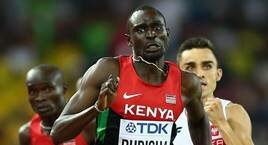The Olympic Games, with their origins tracing back to ancient Greece, have evolved into a worldwide celebration of athleticism, camaraderie, and human spirit. These Games, occurring every four years, bring together athletes from all corners of the globe to compete on a level playing field. However, beyond the spectacle and the medals, the Olympics possess a cultural depth that goes beyond borders. In this exploration, we delve into the profound cultural importance of Olympic running events, uncovering how they bridge cultural divides, celebrate the strength of the human body and spirit, and inspire generations to reach for greatness with the help of a reliable memo writer online at https://writer-elite.com/memo-paper/.
Historical Roots of Olympic Running
Travel back in time to ancient Greece, where the flame of Olympic tradition was first ignited. The city of Olympia hosted the earliest Olympic Games in honor of Zeus, the king of the Greek gods. Amidst the grandeur of these festivities, the simplest of events held significant meaning – running. These races, often held barefoot, symbolized the essence of human endurance and strength. The Olympic running events of today owe their existence to these ancient races, as they laid the foundation for the sporting spectacle that has captivated the world for centuries.
Olympic Running and National Identity
The Olympic arena is where athletes don the colors of their flags, representing not just themselves, but their entire nations. Olympic running events have a unique ability to galvanize national pride and forge a collective identity. Take, for example, the case of Haile Gebrselassie, whose triumphs in the 10,000 meters brought immense pride to Ethiopia, a nation marked by its long-distance running heritage. These athletes transcend being mere sportspeople; they become symbols of a nation's hopes, dreams, and achievements on the global stage.
The Global Sportsmanship Spirit
Beyond the medals, it's the spirit of sportsmanship that truly defines the Olympics. Despite the competitive nature of the games, athletes exhibit remarkable camaraderie and mutual respect. The track becomes a stage where nations converge to celebrate the triumph of human spirit, transcending political or cultural differences. Remember the heartwarming scene of Abbey D'Agostino and Nikki Hamblin helping each other up after a fall during the 2016 Rio Olympics? This embodies the essence of the global sportsmanship spirit – a testament to the unifying power of the Games.
Running as a Cultural Metaphor
Olympic running is not just about physical prowess; it's a metaphor for life's challenges and victories. The track mirrors life's journey – marked by hurdles, sprints, and moments of sheer determination. The struggles athletes face on the track parallel the trials individuals face in their personal journeys. The story of Gail Devers, who overcame Graves' disease to win gold medals, exemplifies the human capacity to triumph over adversity. In this way, Olympic running events resonate with people on a deeply personal level, transcending cultural and linguistic barriers.
Cultural Traditions in Olympic Running
When the world gathers for the Olympics, cultural diversity shines. Each nation brings its unique traditions to the track. Consider the haka, the ceremonial dance of New Zealand's Maori people, performed with fierce pride before races. The attire worn by athletes is not just clothing; it's a representation of cultures and histories. From the intricate face paint of Pacific island athletes to the vibrant uniforms of Caribbean sprinters, every detail showcases the richness of the world's cultures.
Impact on Modern Society
The influence of Olympic running extends beyond the sporting arena, seeping into the fabric of modern society. The pursuit of excellence on display inspires people worldwide to embrace healthier lifestyles. The dedication and discipline required to be an Olympic athlete highlight the values of hard work and determination. Moreover, the infectious enthusiasm of the Games encourages youth to engage in sports, fostering a generation that values teamwork, discipline, and personal growth.
Challenges and Controversies
Even as the Olympics unite us, they're not immune to challenges. Politics, cultural differences, and historical tensions sometimes cast shadows on the Games. Recall the 1936 Berlin Olympics, exploited by Nazi Germany for propaganda purposes. More recently, controversies around gender, performance-enhancing substances, and inclusivity have sparked debates. In such instances, the Olympics become a platform for addressing complex global issues, underscoring the importance of dialogue and mutual understanding.
Conclusion
As the world tunes in to witness the spectacle of Olympic running, we witness more than a physical race; we witness the culmination of centuries of human history, unity, and shared aspiration. The track, whether on ancient soil or modern turf, becomes a bridge connecting cultures, generations, and stories. As athletes cross finish lines, they carry with them the hopes of their nations, the weight of their histories, and the promise of a brighter future. So, as you watch the next Olympic race, remember that beyond the medals and records lies a tapestry woven with the threads of cultures, struggles, and triumphs – a tapestry that unites us all through the universal language of human potential.

